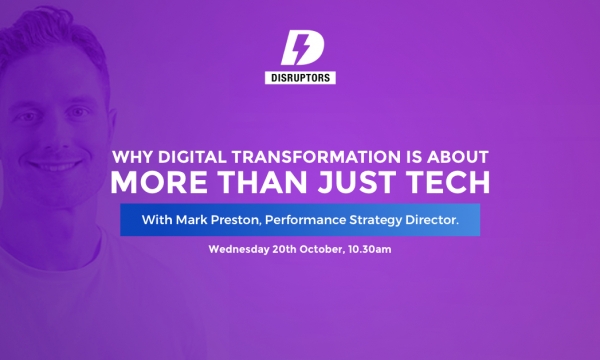Click here to request your free copy of our 70 page report
As featured by:
The latest findings from our market intelligence report, reveals that sports betting is the largest and fastest growing segment within the online gambling sector. In this post, Philip McGuin, Head of Insight and Market Research at Stickyeyes discussed the key trends that are driving the market’s growth.
Setting the scene
Online sports betting is a vibrant market that is being driven by the growth of “in-play betting” and in particular football betting. This has led to a rapid increase in customers using their mobile devices to bet online and it is those brands that are able to capitalise on this by delivering relevant content and services that are going to be the most successful.
What is driving growth within online gambling?
In 2012, online gambling broke the £2 billion barrier in 2012. This growth has been primarily driven by sports betting, which now represents over 50% of the value of the market. While the majority of UK consumer expenditure on sports betting still continues to flow through land-based operations, the remote sector, i.e. online desktop and mobile devices, has been able to close the gap through its own rapid expansion. The main growth area in sports betting is football, with “in-play betting” being the fastest growing element. Since 2009/10 consumer expenditure on football betting has grown from £355 million to £600 million in 2011/12.
The rise of remote betting, i.e. online and mobile, has given major impetus to the football betting market with all of the leading gambling brands having developed promotional and sponsorship opportunities within this area. Our latest research shows that queries from mobile devices account for 25.83% of all brand and non-brand searches. Moreover, during 2012 search impression volume via mobile devices grew by 75%, with sports betting having the largest share (See Graph 1).

Which keyword markets govern search within online sports betting?
Within online gambling, sports betting terms have the largest share of search impression volume with 40% of the total (See Graph 2). Within the sports betting market, horse racing betting dominates with 51% , the second largest being football with 15% (See Graph 3). Generic sports betting terms are typically used to develop search exposure and help initiate the search journey, sport phrases such as football and horse betting help users refine their search, while the more specific event or competition (i.e. Cheltenham Festival or Champions League) related phrases help drive specificity and the conversion process. Within the generic sports betting market, over 90% of the search impression volume comes from the following phrases: betting, online betting, sports betting, betting site, betting online, betting websites and online betting sites


Which brands are leading organic and paid search for online sports betting?
By measuring click share (the act of a visitor clicking on a PPC advert or organic link within the search engine result page) our report goes on to analyse the performance of the major online gambling brands in organic and paid search for a range of sports betting keyword markets between the period January 2012 and December 2012.
While Coral leads the organic click index and William Hill heads the paid, the overall leader within the generic sports betting keyword market is Betfair. Betfair’s lead however is only small at a marginal 0.24%, and it is clear that no one brand is dominating this segment. Any shift in organic rankings or increase in the paid search exposure for any of the top brands will see a dramatic shift in the landscape (See Graph 4).

The leading brand within the horse racing betting keyword market is William Hill, this position being mirrored within both the organic and paid click share index. With a 20.26% click share, William Hill dominates this sub-vertical and is the most aggressive brand leveraging both search channels to gain maximum exposure (See Graph 5).

Football betting is a highly competitive sub-vertical within sports betting, while William Hill leads with over 15% click share, brands like SkyBet, Ladbrokes and Betfair are closing the gap (See Graph 6). Also in the mix is a range of betting odds comparison services such as Oddschecker. These comparison sites provide many of the big gambling brands with the necessary means to advertise their products online. However, these comparison websites will also go head-to-head with the very same operators as they compete for premium positions within the search engines to maximise their exposure.

Exposure for terms that relate to key events are critical to the conversion process, for example, keywords for the Champions League includes terms such as Champions League odds, Champions League betting and Champions League bet. Looking at the 2012 Champions League, the most visible brand across both organic and paid search was Betfair with a click share of 14.54%, followed by Bet365 (12.95%) and Ladbrokes (11.15%) (See Graph 7).

Why brands are engaging customers via social media
Search remains at the forefront of the online mix and continues to be the staple diet of acquisition for most gambling brands, however, there remains a big divide within online gambling between a small group of brands who are utilising social media with good effect in order engage their customer base verses those who have yet to embrace this as a route to market. Paddy Power leads the social score card index with 79 out of 100, though they are only marginally ahead of SkyBet who have a score of 78 out of 100 (See Graph 8). This is reflective of the fact that both of these brands are deploying a well co-ordinated social media strategy that embraces all social channels. Paddy Power is one of the few gambling brands that have successfully integrated their main site and brand proposition with a wide range of social assets, including Google +, Facebook and Twitter, to engage directly with customers. Moreover, they cross pollinated with great effect a series of quirky TV adverts entitled “We Hear You” with these platforms.

What type of content are sports brands creating to engage and acquire customers?
One of the key areas we looked at within the research was to compare and contrast the content tactics used by cross vertical online gambling brands (William Hill, Paddy Power, Ladbrokes, Betfair, Sky Bet and Bet365) within the sports betting market. For example, are brands mainly using price and product promotions or are they striking up conversation through prediction of the outcome of a football game? Or the latest odds on a horse race? The analysis revealed that product and price promotions have the largest volume of occurrence with 38.42%, this is closely followed by sports news and betting insight with 35.39% (SEE GRAPH 9).

Sports news and betting insight plays a crucial role in the content tactics of all betting brands. The type of content typically posted onto Facebook includes predictions, betting odds and tips as well as updates on live games and post match reviews. Sky is a good example of how a betting brand integrates its content on platforms such as YouTube. They use this channel to post video content of football match analysis as well as insight from pundits such Jamie Redknapp and Ed Chamberlin. In order to maximise reach and exposure links to this content are posted on Facebook and Twitter as well as the Sky Sports football blog site.
Get your copy of the 2013 report.




